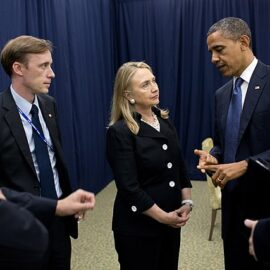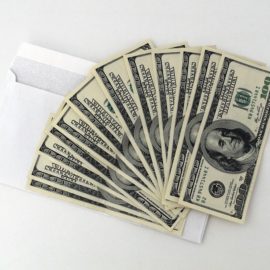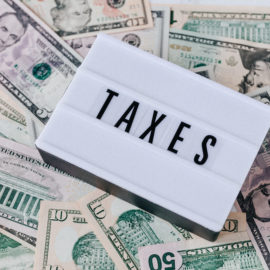

This article is an excerpt from the Shortform book guide to "Strangers In Their Own Land" by Arlie Russell Hochschild. Shortform has the world's best summaries and analyses of books you should be reading.
Like this article? Sign up for a free trial here .
Is trickle down economics a failure? Why do people continue to support it?
Trickle down economics is widely considered a failure. One example is governor Bobby Jindal’s term as governor of Louisiana, where he promoted anti-environmental and big business policies.
Read more about how trickle down economics is a failure and how deregulation furthers the problem.
Trickle Down Economics Failure and Anti-Government Politics
As one of the most strongly Republican states in the country, Louisiana offers a mix of low-tax, low-regulation, anti-government, and anti-labor policies designed to lure businesses from other parts of the country (and around the world) to the state.
Right-wing politicians claim that these corporations bring much-needed tax revenue, investment, and jobs to the state. One such figure was Republican former Governor Bobby Jindal, who was elected in 2007 and re-elected in 2011, each time by large margins.
Jindal campaigned as an explicitly anti-environment candidate, promising to slash the state’s already meager environmental regulations in order to entice more extraction industry firms to Louisiana. A centerpiece of his administration was a $1.6 billion “incentive” package for industry, consisting of massive tax cuts and direct public subsidies to companies. Unfortunately, Jindal’s showering of state largesse on corporations diverted resources from the state’s health and education systems, resulting in the layoff of 30,000 nurses, teachers, and safety inspectors, among other public servants.
A Race to the Bottom
Jindal’s “race-to-the-bottom” approach to economic development, however, may prove to be nothing more than a massive giveaway of public resources to wealthy corporations, for scant returns in long-term growth.
One major study funded in large part by energy industry giant Sasol made the case that towns like those of southwest Louisiana needed to increase public investment in order to attract valuable, permanent white-collar engineering and chemistry jobs to the region.
The study argued that college-educated professionals want to live in places with high-quality public services like schools, hospitals, museums, and strong environmental protection—even if they have to pay higher taxes in order to live in such places. The private sector and public sector are not in competition. It’s more of a symbiotic relationship, and the private sector needs a robust public sector. This helps demonstrate the trickle down economics failure.
The Jobs Myth
Conservative Louisiana politicians argue that the environmental degradation is a necessary price to pay for the jobs that the petrochemical companies bring to the state. If the federal government were to crack down and pass more aggressive anti-pollution regulations, they claim, the companies would desert the state and leave hardworking Louisianans jobless.
This was the rationale behind Jindal’s pro-corporate agenda. It would also have the added benefit of keeping “Big Government” away from Louisiana. After all, if billions of dollars in new corporate investment were set to pour into the state, there would surely be no need for Washington, D.C. and its overspending ways.
But the numbers cast doubt on this approach and raise the possibility that the jobs vs. environment tradeoff is a myth. For all the rhetoric about oil jobs and investments, the industry only accounts for approximately 10 percent of all jobs statewide. As a result of automation, oil and petrochemical companies simply don’t require as many workers as they once did. One Oxford University study from 2013 shows that fully 91 percent of petroleum technician jobs are vulnerable to automation, a trend widely seen across the broader manufacturing industry.
The job-creation pattern in the extraction industry is often marked by an initial influx of construction jobs to build the plants (which are often filled by low-wage migrant workers), followed by a relative handful of permanent jobs once the project is complete. Often, these permanent jobs are for highly skilled engineers and technicians, not blue-collar workers, showing how the trickle down economics failure affects all types of work.
Leaking Out, Not Trickling Down
A common right-wing claim is that low taxes on corporations will lead to a trickle-down effect, in which bigger corporate profits are shared throughout the economy in the form of dividends, jobs, higher wages, and increased state tax revenue. But in Louisiana, the trickle down failure is clear.
But this appears to be another myth. Taxes on oil company revenues have failed to fill the state’s coffers, belying the promises of politicians like Jindal that their generous tax subsidies for these companies would pay for themselves. In reality, taxes on oil companies only account for 14 percent of state revenue.
Because the industry is dominated by a handful of international companies (who invest their revenues overseas) and migrant workers (who remit their wages to families in their home countries), very little of the money generated through petrochemicals actually finds its way into Louisiana’s economy.
Instead of trickling down, Louisiana’s oil wealth leaks out. Louisianans get the pollution, but not the profits, showing how trickle down economics is a failure.

———End of Preview———
Like what you just read? Read the rest of the world's best book summary and analysis of Arlie Russell Hochschild's "Strangers In Their Own Land" at Shortform .
Here's what you'll find in our full Strangers In Their Own Land summary :
- What drives right-wing politics in America
- How a lack of empathy is increasing the partisan divide
- Why Republican politicians remain popular even if their policies don't help their voters






